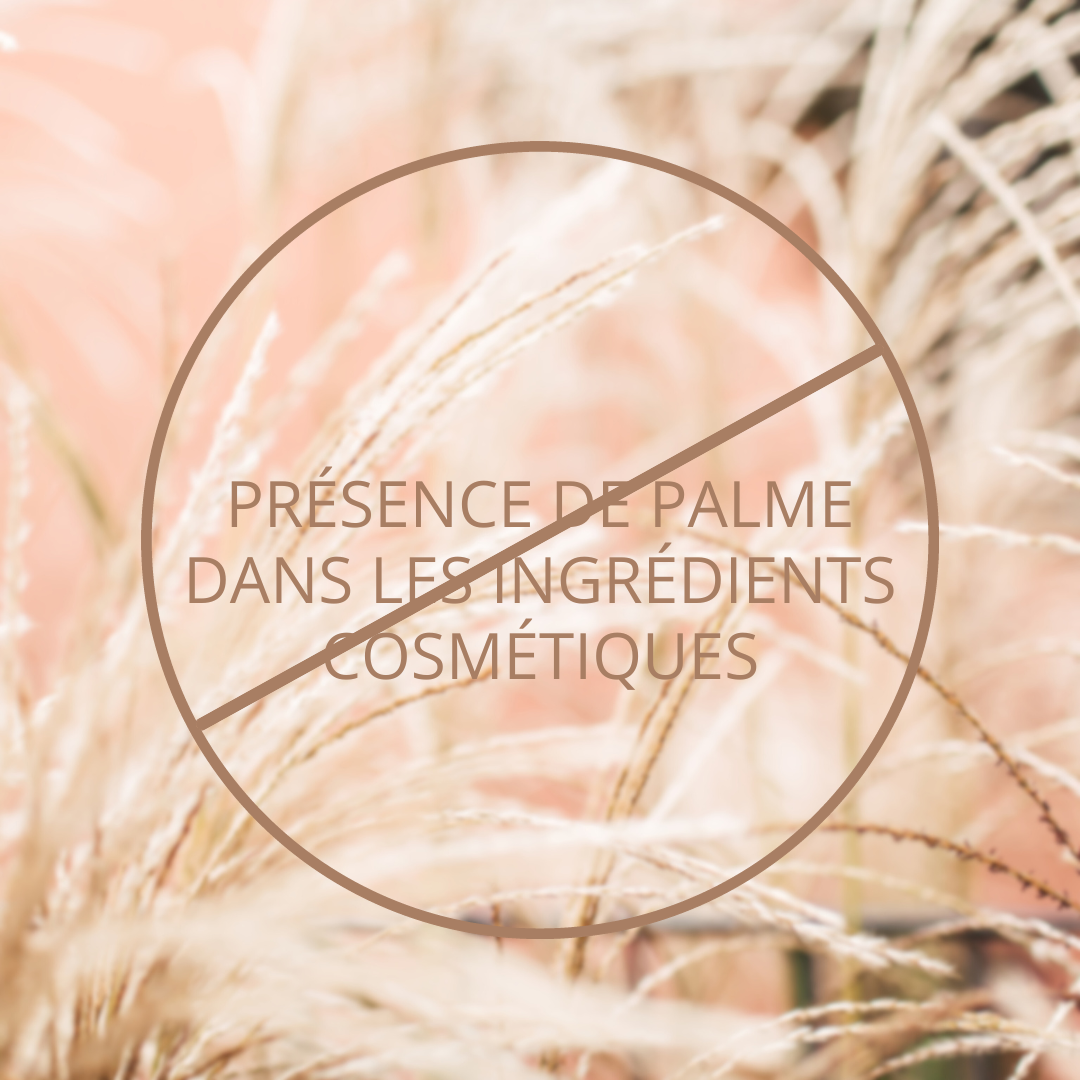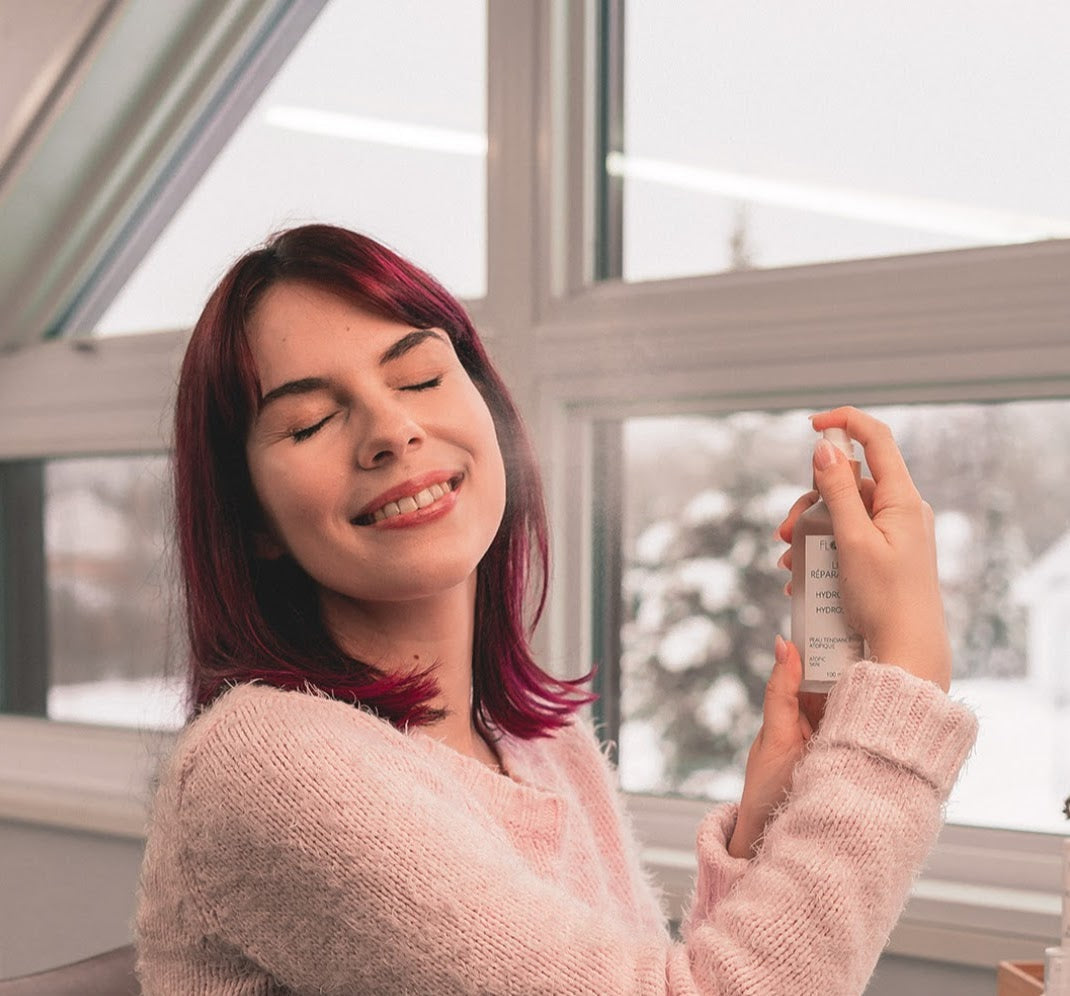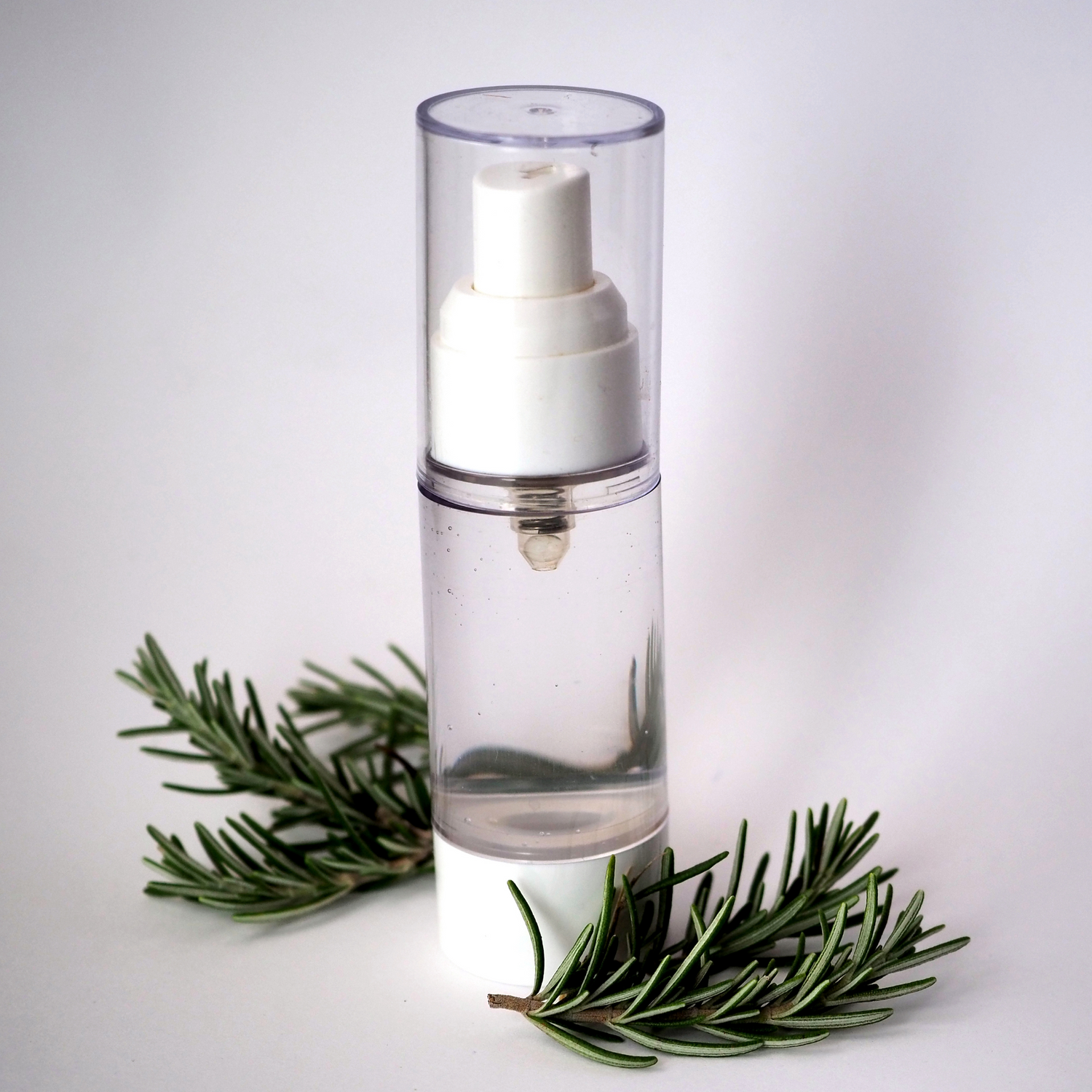PALM , or Palm Oil , has become a major concern in the cosmetics industry due to its environmental, human rights, and health impacts. I would like to shed light on the truth about palm oil in cosmetics, help you identify its derivatives, and take steps to minimize its impact as consumers.
First, here are some of the main consequences of palm oil in cosmetics:
-
Deforestation : Palm oil production is a leading cause of deforestation in tropical regions such as Indonesia and Malaysia. This deforestation leads to biodiversity loss, habitat destruction, and the release of large amounts of greenhouse gases.
-
Biodiversity loss : Conversion of forests to oil palm plantations threatens native flora and fauna, including endangered species such as the orangutan.
-
Human exploitation : Palm oil production is often associated with human exploitation, including child labor and inhumane working conditions on plantations.
-
Effect on aquatic ecosystems : Waste from the palm oil industry can contaminate rivers and oceans, threatening aquatic ecosystems.
Here are some of the palm oil derivatives commonly used in cosmetics:
Glycerides : Palm oil glycerides are commonly used in cosmetic products for their emollient and moisturizing properties (you can even find them in vegetable glycerin).
Emulsifiers : Some emulsifiers, such as glyceryl stearate, cetearyl glucoside, and polysorbate, cetearyl alcohol, can be derived from palm oil and are used to stabilize emulsions in creams and lotions.
Glyceryl Stearate : It is often used in cosmetic products to help blend water and oil-based ingredients.
Surfactants : Palm oil-based surfactants, such as laureth sulfates and cocamidopropyl betaines, are used in hair care products, cleansers, and mousses for their ability to create lather and cleanse.
Retinyl Palmitate : This is a palm oil derivative commonly used in skin care products, especially anti-aging products.
Ascorbyl palmitate : This palm oil derivative is a form of vitamin C used in some cosmetic products for its antioxidant properties.
Tocopheryl Acetate : This is a form of vitamin E derived from palm oil, often used as an antioxidant in skin care products.
To concretely minimize your impact related to palm oil in cosmetics, here are some actions you can take:
-
Read product labels : Make it a habit to read cosmetic labels carefully. Look for products that do not contain ingredients derived from palm oil.
-
Opt for ethical brands : Look for cosmetic brands that actively commit to using sustainable alternatives to palm oil. Some brands choose not to use palm oil at all, such as brands with the Slow Cosmétique label.
-
Use natural and homemade products : You can also choose natural and organic cosmetics, or even make your own at home. There are many recipes online that will allow you to create personalized skin care products without palm oil.
-
Support sustainable certifications : Look for products with certifications such as RSPO, RSPO-IP (Identity Preserved), or RSPO-SG (Segregated), which guarantee that the palm oil used is produced in a sustainable and traceable manner.
-
Raise awareness and share : Share your knowledge about the challenges of palm oil in cosmetics with your family, friends, and social networks. The more informed consumers are, the more likely they are to make informed choices.
-
Support green initiatives : Support organizations and campaigns that advocate for sustainable practices in the palm oil industry and encourage transparency.
-
Reduce overall consumption : Ultimately, the best way to minimize your impact is to reduce your overall consumption of cosmetic products. Use only what you really need and avoid waste.
In my opinion, raising awareness about these palm oil derivatives can help you as individuals make more ethical and sustainable choices in your daily lives . By acting responsibly in your cosmetic product choices and supporting sustainable practices, you are helping to reduce the demand for unsustainable palm oil and promote positive change in the industry. Every little bit helps to preserve our planet and its precious ecosystems.







